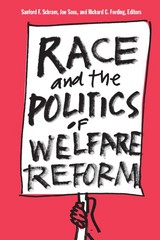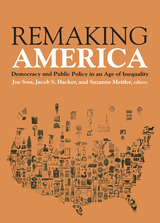5 start with R start with R


Gupta conducted ethnographic research among officials charged with coordinating development programs in rural Uttar Pradesh. Drawing on that research, he offers insightful analyses of corruption; the significance of writing and written records; and governmentality, or the expansion of bureaucracies. Those analyses underlie his argument that care is arbitrary in its consequences, and that arbitrariness is systematically produced by the very mechanisms that are meant to ameliorate social suffering. What must be explained is not only why government programs aimed at providing nutrition, employment, housing, healthcare, and education to poor people do not succeed in their objectives, but also why, when they do succeed, they do so unevenly and erratically.



In a fervent appeal for clearer thinking on social issues, Christopher Jencks reexamines the way Americans think about race, poverty, crime, heredity, welfare, and the underclass. Arguing that neither liberal nor conservative ideas about these issues withstand close scrutiny, he calls for less emphasis on political principles and more attention to specific programs. Jencks describes how welfare policy was dominated in the early 1980s by conservatives who promoted ideas that justified cutting back sharply on the social programs of Lyndon Johnson's Great Society. They believed that a period of sustained economic growth, with low taxes and free markets, would do more to help poor people than coddling them with government assistance.
Despite the economic expansion of the later Reagan years, however, the problems of persistent poverty grew even more serious. The liberals took the initiative in the late 1980s, but their proposals failed to win broad popular support. With clarity and a gift for apt analogy, Jencks analyzes influential books on such subjects as affirmative action (Thomas Sowell), the “safety net” (Charles Murray), the effects of heredity on learning and propensity to commit crime (James Q. Wilson and Richard Herrnstein), ghetto culture and the underclass (William J. Wilson). His intention throughout is “to unbundle the empirical and moral assumptions that traditional ideologies tie together, making the reader's picture of the world more complicated”—in other words, to force us (readers and policymakers) to look at the way various remedial plans actually succeed or fail.
For example, he believes that until we transform AFDC so that it reinforces rather than subverts American ideals about work and marriage, efforts to build a humane welfare state will never succeed. Other prescriptions, initially surprising and sometimes shocking, show demonstrable good sense once they are examined. As the author says, “If this book encourages readers to think about social policy more concretely, it will have served its primary purpose.”
READERS
Browse our collection.
PUBLISHERS
See BiblioVault's publisher services.
STUDENT SERVICES
Files for college accessibility offices.
UChicago Accessibility Resources
home | accessibility | search | about | contact us
BiblioVault ® 2001 - 2024
The University of Chicago Press









